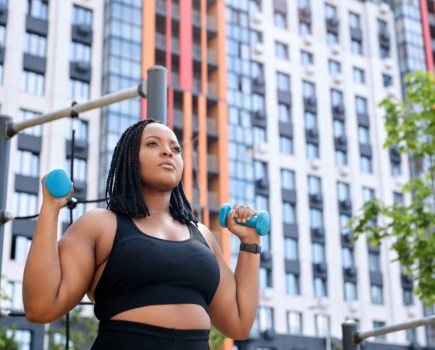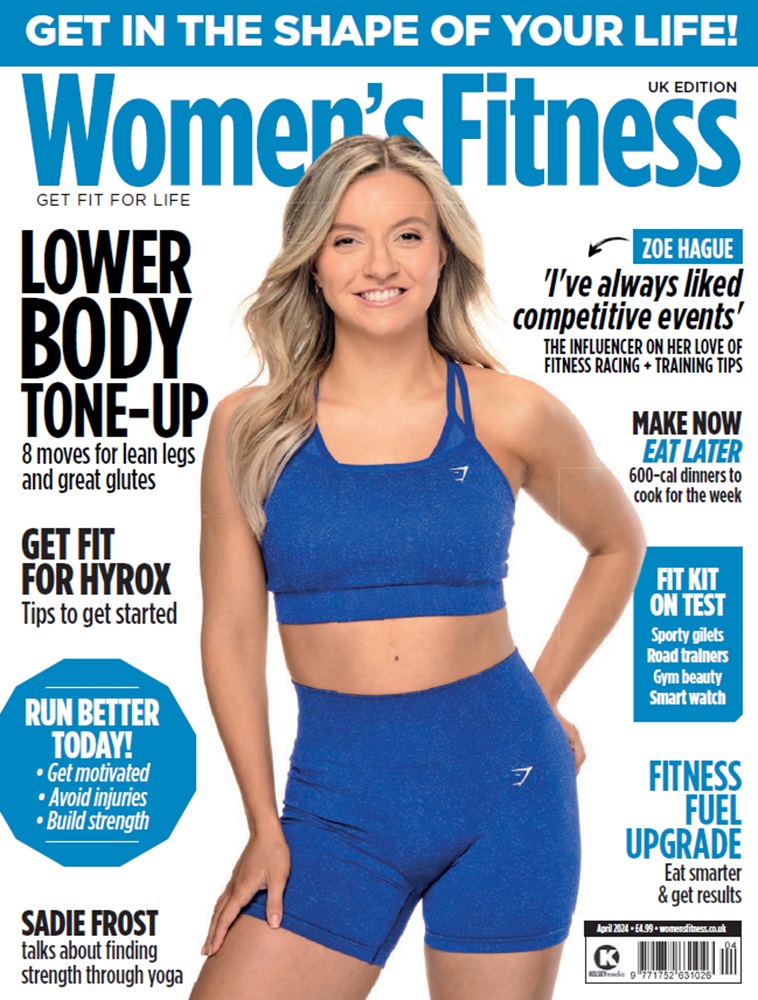You know you want to drop a few pounds, the only question is should you go slow and steady or will a quicker approach be a better bet? Eve Boggenpoel tests The Fast 800 programme, sharing her before and after results, to see if it really is the answer to fast and healthy weight loss…
Check out our interview with Dr Michael Mosley below!
Four weeks ago, if you’d asked me whether I’d prefer root canal surgery or to survive on 800 calories a day I’d have fallen off the chair laughing. Root canal, no contest! But fast-forward a month and I’ve not only consumed a fraction of my normal food intake, I’ve lost a stone in the process. And, surprisingly, I was rarely hungry.
Losing a stone in four weeks certainly falls into the fast weight-loss category, but haven’t we always been told that dropping more than 1-2lbs a week is bad for you? ‘As a general principle, weight-loss diets should be safe, efficacious, healthy and nutritionally adequate,’ according to registered nutritionist Hannah Braye. And, until relatively recently, the general consensus was they should be gradual, as well.
‘Slower weight loss, of 1-2lbs a week, is often encouraged as being more realistic than the adoption of strict and difficult-to-reach goals,’ says Braye, ‘and some people may find it less daunting to embark upon.’ The downside, of course, is that cutting your calories by the required 500-600 a day can be a challenge month after mouth-watering month. So what can you do if you want to lose weight but don’t have the appetite to continually turn down your favourite foods? Enter The Fast 800 programme…
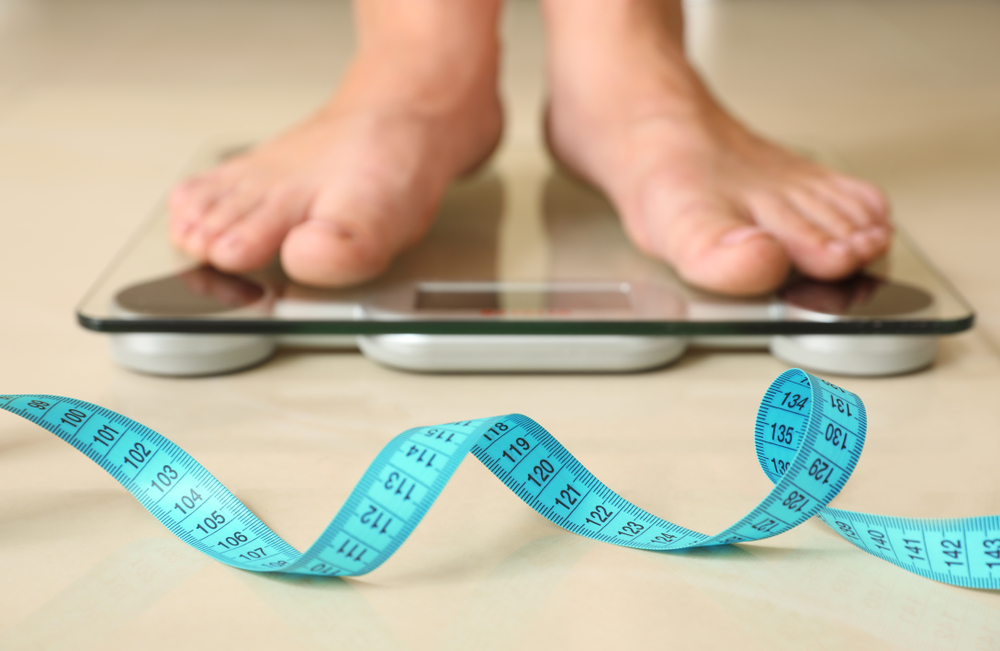
‘Weight-loss diets should be safe, efficacious, healthy and nutritionally adequate.’
Testing The Fast 800 weight loss programme
While the prospect of drastically reducing your calorie intake can sound tough, for many, the speed of results make it worth the effort. ‘Some people report faster weight loss to be more motivating, so find an intense approach to dieting more rewarding,’ says Braye. The results speak for themselves. Research published in the BMJ found participants who ate 800 calories a day lost more than three times the weight of a control group.
But why is 800 calories touted as the holy grail of fasting? It’s all down to the maths. ‘Your body runs on two different fuel systems – sugar and fat,’ explains Dr Michael Mosley creator of The Fast 800 diet programme, where participants consume 800 calories a day for up to 12 weeks.
‘As your body prefers sugar, it chooses to burn the 500gm of sugar you have stored (as glycogen) before anything else. Cutting your food intake to 800-1,000 calories a day, based on a relatively low-carb, Mediterranean-style diet, means you will swiftly burn through the glycogen and start fat burning,’ adds Dr Mosley.
What are the results of The Fast 800 programme? Well, not only can you outrun diet fatigue, your insulin function and blood sugar levels improve (banishing cravings) and your weight visibly changes within days. Of course, some people experience a few side effects, but these are usually short lived. ‘The main side effects are headaches and constipation, normally caused by not drinking enough water,’ explains Dr Mosley, ‘and, initially, you may feel drained while your body adapts to the new diet.’
Is fasting good for the body?
Full-time fasting doesn’t suit everyone, however – there are medical reasons why some groups should avoid it entirely – which may explain why intermittent fasting has garnered such a following in recent years. Made popular by Dr Mosley with the 5:2 diet, where dieters ate 500 calories two days a week and normally for five, he’s since increased the fasting-day calorie count to 800 (and renamed the diet the New 5:2).
And despite only fasting on two days, the benefits are still impressive. Research based on humans shows intermittent fasting lowers your risk of diabetes, reduces oxidative stress and inflammation, increases cellular repair and levels of brain-derived neurotrophic factor and may help prevent cancer. Animal studies, meanwhile, show promise in protecting against Parkinson’s disease and increasing your lifespan.
The Fast 800 and New 5:2 aren’t just about calorie reduction, though, eating plans are based around lean protein, nuts and seeds, olive oil and green veg to ensure optimum nutrition. Regular exercise and mindfulness are also central to the plan, giving you the best possible chance of success.
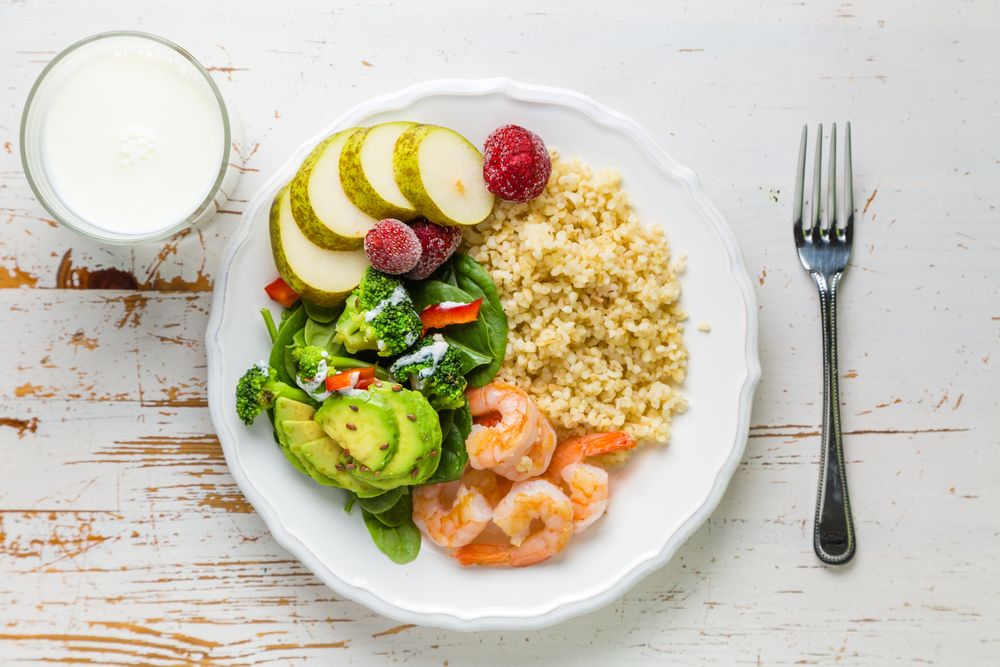
Research shows intermittent fasting lowers your risk of diabetes, reduces oxidative stress and may help prevent cancer.
‘The Fast 800 weight loss programme worked for me!’
‘As someone who’s been known to demolish a packet of Doritos in one sitting and a giant Toblerone in two, limiting myself to 800 calories a day feels daunting. Previously, I’ve been able to keep my BMI relatively in check with exercise and the occasional diet, but weight gain brought about by a bereavement, hormonal changes and, finally, lockdown has meant drastic action is needed.
‘Terrified of surviving on just 800 calories a day, before I begin the programme I test out a few meals from Fast 800 Easy by Dr Claire Bailey (Octopus, £16.99). The food is delicious and filling – Nutty Seedy Porridge, Sweet Chilli Salmon and my soon-to-be favourite Crunchy Rainbow Salad with Cashews and Ginger. If this is what I’m going to be eating, maybe it won’t be so tough after all.’
The Fast 800 programme: before and after results
Week 1
‘I begin the week feeling optimistic – especially when I discover lunch is often leftovers from the previous night’s evening meal, so I don’t have to prepare 21 meals from scratch. I know there’ll be times when I’m too busy or too tired to cook, so I stock up on some Fast 800 Protein Shakes. I try the Strawberry shake at 11.45am one morning and, astonishingly, I don’t feel hungry until about 4.30pm. By the end of the week, I’ve lost 3.7kg, so I’m more than happy. True, I’ve had a couple of hunger twinges, but they soon pass.’
Week 2
‘The online meal plans and shopping lists are a boon. I’m beginning to know which recipes work for me and which don’t. If I’ve had a small evening meal, for example, I’ll choose a more substantial breakfast the next day. I also make sure I have the ingredients for my favourite meals in the house, so I can switch things around when I need to. I’ve been on the plan for 10 days now, and one thing I notice is I’m much more emotional. Now that I’m no longer stress eating, I need to find nourishing ways to give myself the comfort I previously sought from food.’

‘I needed to find nourishing ways to give myself the comfort I previously sought from food.’
Week 3
‘The exercise programme begins this week and today is a resistance day. The beginner programme is great for newbies – quick (12 minutes) and well structured. It’s too easy for me, so I add in a core workout from Ekhart Yoga as I’m apple shaped and really need to work on my belly.
‘I feel that my relationship to hunger is changing. If I get a hunger pang, I no longer feel compelled to eat something straight away. I’m also clearer on what’s hunger and what’s emotional eating. When I have slipped up, old favourites no longer hit the spot. The empty calories of a packet of crisps or sugar hit of a chocolate Hob Nob aren’t as satisfying anymore as a nutrient-dense snack.’
Week 4
‘It’s a good day. I put my yoga harem pants on and they were so baggy I thought I had them on the wrong way around! I jumped on the scales straight away to discover I’ve lost a stone. What’s more, I get my cholesterol levels tested later in the week and they’ve dropped by two points. Job done, Dr Mosley!
Q&A with the creator of The Fast 800 diet programme

Dr Mosley, creator of The Fast 800 programme
We asked the intermittent-fasting guru, Dr Mosley, for the skinny on The Fast 800 programme…
What can I expect?
‘As well as rapid weight-loss, most people report feeling sharper.’
Can I still train?
‘If you’re already active then keep going, although we wouldn’t advise planning a marathon when doing a weight-loss programme! There’s no specific amount of carbs you should be eating.’
How can I ensure success?
‘Plan your meals in advance and ensure you have the support of the people you live with.’
What if I slip up?
‘Breaking the diet is common. Don’t regard it as failure, just a temporary set-back. If you hit a weight-loss plateau, look at what you’re eating.’
Will it help my performance?
‘Time-restricted eating can benefit athletes. In a recent study, cyclists who followed a 16:8 regime (eating within an eight-hour window) lost fat without losing muscle, and improved their peak power.’
See our full interview with Dr Michael Mosley below!
Example recipe from The Fast 800 diet plan
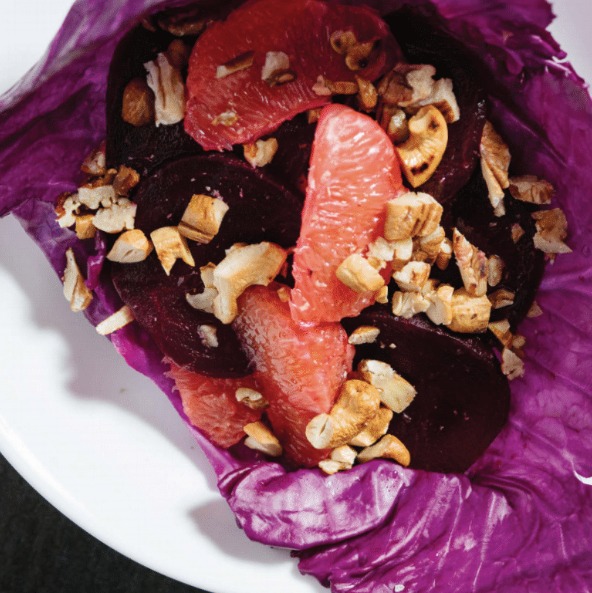
Raddichio, Beetroot and Grapefruit Salad
This refreshing recipe from The Fast 800 programme is perfect for summer. Packed with protein and healthy olive oil, you’ll feel satisfied for hours.
Ingredients
- 50g radicchio
- 2 beetroot, cooked andsliced
- ½ grapefruit, peeled and segmented
- 1½ tbsp extra virgin olive oil
- ½ lemon, juiced
- 20g raw cashews, toasted
- 20g pecans, toasted
- Black pepper
- Sea salt
Method
- Separate the radicchio leaves and place on a plate.
- Top with the beetroot and the grapefruit segments.
- Whisk together the oil and lemon juice and drizzle over the salad.
- Sprinkle with the toasted nuts to serve.
Interested in trying out The Fast 800 online programme yourself? Click here to sign up now, with a free 7-day trial!
Words: Eve Boggenpoel | Images: Shutterstock
Related content:






